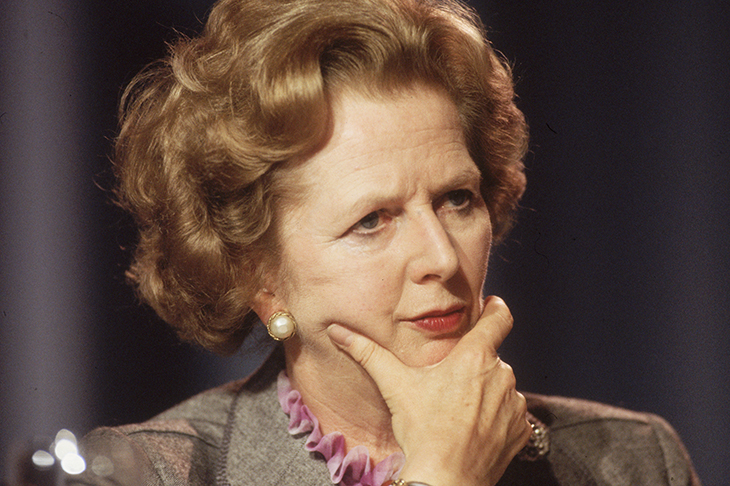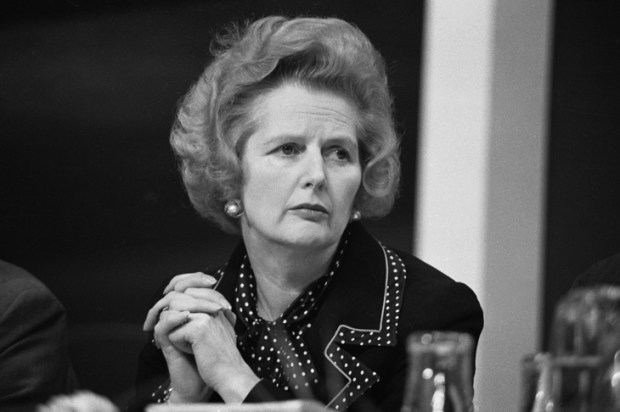Everywhere you look, from the free market to intelligence agencies, core democratic institutions are under attack – be it from Corbyn’s Labour in the UK to creeping populism in America and Europe. These institutions are what help safeguard a healthy society.
It’s almost 40 years since Margaret Thatcher swept to power as Prime Minister of the UK. I was eight at the time and would later work in the financial sector which owes its existence to her legacy. Since that time, the entire intellectual, social, political and cultural order she ushered in has delivered an unprecedented and undisputed level of opportunity and innovation. It is an order however that is treading water and looking fragile.
But there is hope.
The intellectual headwinds of politics are blowing in a new direction – a radically incremental and distinctly conservative one. Trust in politics is low. People are frankly fed up being promised and voting for Utopia but getting ‘managed decline’. They seek a politics rooted in small-town values of responsibility, aspiration, community and hard work, underpinned by a lean government that actually gets the basics right. Not responding to this call will end all that has been achieved in the last four decades.
I believe those who stand for the legacy of Mrs T are duty-bound to help carve out a new mission in politics. We must demonstrate the power of finance for good rather than bad, and the power of the state to cut taxes, cut debt and invest taxpayer money in tangible outcomes rather than spend it indiscriminately in order to win votes.
This new mission can be found in the social investment approach.
I recently attended a talk by former New Zealand Prime Minister, Bill English. Sir Bill masterminded what became known as the social investment approach that defined the policy agenda of his and John Key’s government for the near decade they were in power. They polled around in the high 40s more or less consistently in that time. They were perhaps the most transformative centre-right government in the post-GFC era to date.
But what exactly is social investment?
Where social spending is focused on consumption, a social investment approach involves governments extracting a social return in terms of tangible outcomes from spending that money. These outcomes might be fewer people on benefits, more people in work, effective healthcare or greater educational achievement.
English, a conservative, Southland farmer, envisaged a public sector mandated to deliver and account for outcomes like this. Take for example New Zealand’s approach to welfare reform. English’s government actually made some of the largest investments in the history of New Zealand’s welfare state. But this went on targeted and intensive support services to young people on benefits to help them into work, rather than simply splashing cash on higher benefit rates. New social obligations and sanctions were introduced for those in receipt of benefits. These changes along with the availability of deeper and better quality data enabled government actuaries to calculate the overall lifetime financial liability of the beneficiary population for the first time. Australian actuaries, Taylor Fry, calculated the net liability to be $78 billion (NZD) – just under 40 per cent of New Zealand’s GDP. The social investment approach reduced this liability by $13.7 billion.
It’s a valuable lesson in how easy it is for governments to calculate how every dollar is spent but not how every dollar is spent most effectively. By the time the National-led Government lost power last year, 70,000 people had gone off benefits and into work. It showed that not only more spending in controlled instances can actually reduce the size of government, but also the damage that big government paternalism often inflicts on vulnerable people.
Social investment had worked. And it now was to be rolled out in other areas like health and child protection services, family violence and criminal justice. By this time, this transformation had caught the attention of then Social Services minister, Christian Porter, who championed an investment approach here. Treasurer Scott Morrison has likewise been an advocate for social impact investing.
Central to this is the need to take people with you politically. This achieves long-term changes in attitudes between generations as opposed to mere changes in policy.
As we reap the delayed political consequences of the GFC, there is now little point in governments nearly losing elections for the sake of reducing short-term spending. It’s actually the long-term drivers of that spending that must be reduced decisively as well. By reducing these long-term drivers we will ultimately reduce demand for public services in Australia, permanently, and create a society that is freer in fact rather than rhetoric, with more choices, and is better equipped for the future.
Implementing the right policies while building constituencies in support of these, is just as vital if the centre-right is to win the culture war as well as the political war in the coming decades. Thatcher and Reagan were applauded for their ideological purity. But it’s easy to overlook the fact that rather than merely win the argument, they won the hearts and minds of ordinary, hard-working people and won new converts, election to election. They did it by illustrating to us all a clear, optimistic vision of the future – that our lives could indeed be better if we did something about it.
Liberals want a small state. That battle has been won. The fight for a leaner and more effective state is just beginning. The tools we have in the form of technology, better and more sophisticated data and research now enable us to thrust the proponents of big government into permanent retreat. But we can only do this if we make government better at what it does, not just smaller in how it does it.
The Left’s default position is to oppose anything the Liberal party does in government. Their pessimism and lack of policy renewal has reached a political nadir. The cause of creating a nimble and effective state is a mission for the Liberal party to seize with both hands. Making government do things people care about successfully, being honest when they get it wrong and centring policy on comprehensive data and evidence are the first steps to restoring trust in politics.
Jane Hume is a Victorian Liberal senator
Got something to add? Join the discussion and comment below.
Get 10 issues for just $10
Subscribe to The Spectator Australia today for the next 10 magazine issues, plus full online access, for just $10.
You might disagree with half of it, but you’ll enjoy reading all of it. Try your first month for free, then just $2 a week for the remainder of your first year.














Comments
Don't miss out
Join the conversation with other Spectator Australia readers. Subscribe to leave a comment.
SUBSCRIBEAlready a subscriber? Log in